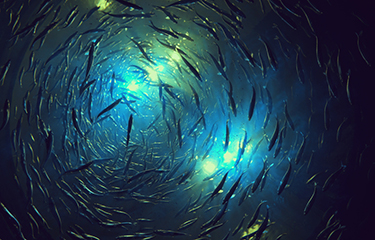The United Nations’ Climate Action Summit in New York, which kicked off Climate Week at the end of September, may be long over, but the activities that took place around the world – and the strong messaging about the need to find solutions to save the planet from global warming – reached an unprecedented number of people this year.
The Intergovernmental Panel on Climate Change (IPCC) released a post-summit special report which outlined the major changes being observed in the earth’s oceans and frozen regions. The report concluded that the negative effects of warming oceans, melting ice, and rising sea levels already being experienced will accelerate in future decades.
If the earth's temperature increases by more than 3 degrees Celsius, sea levels are predicted to rise by more than three feet within 80 years, due to the melting of the Antarctic and Greenland ice sheets. This will displace or affect the 680 million people living in low-lying coastal zones, the report said, along with 65 million citizens of small island states – translating to almost 10 percent of the global population. In addition, the oceans are expected to heat up twice as fast as they were in 1993, and the majority of warm-water coral reefs are projected to die.
Looking at fisheries, the report warns that future shifts in fish distribution, and decreases in their abundance and catch potential due to climate change, are projected to affect income, livelihoods, and the food security of marine resource-dependent communities.
A report published at the same time by the U.N. Summit’s Science Advisory Group, entitled “United in Science,” looked at the latest authoritative information on climate change and the global response attempted thus far, highlighting the urgent need for concrete actions to halt the worst effects.
Important recommendations from a third report, published by the High Level Panel for a Sustainable Ocean Economy (HLP), included eliminating harmful fisheries subsidies, strengthening international tools to eliminate IUU fishing, avoiding the transport of fish by air, reducing discards, improving fisheries management to focus on optimizing the harvest biomass, and reducing and eliminating harmful hydrochlorofluorocarbons in refrigerants.
In particular, as both a short and longer-term goal, the report recommended that incentives are created to encourage people to switch from high carbon land-based sources of protein such as meat, to low-carbon ocean-based sources such as fish and seaweed. The report also recommended that incentives should be created to improve fishery management and encourage lower trophic level aquaculture, and that new finance mechanisms be devised to help small-scale fisheries transition to more sustainable methods.
Further recommendations were to initiate research into the impacts and sustainability considerations of scaling marine aquaculture, and to enhance the overall understanding of how climate change and ocean acidification will impact aquaculture and fisheries.
A paper published in the journal Science by Oregon State University professor Jane Lubchenco, Ove Hoegh-Guldberg of the University of Queensland, and Eliza Northrop of the World Resources Institute tied all the aforementioned reports together. The researchers concluded that ocean-based actions have greater potential to infill gaps in climate change mitigation than previously thought.
Lubchenco, a marine ecologist in the OSU College of Science and a former administrator of the National Oceanic and Atmospheric Administration (NOAA), pointed out that analysis conducted by the HLP found ocean-based activities have much greater potential in helping to reach the 1.5-degree Celsius above pre-Industrial Age levels target by 2050, as called for in the 2016 Paris Agreement.
Scientists believe that limiting warming to 1.5 degrees would maintain substantial proportions of ecosystems while also benefiting health and economies.
The High Level Panel is an initiative of 14 heads of state who work together to adopt and promote policies and practices associated with a sustainable ocean economy. Led by the leaders of Norway and Palau, the panel also has representation from Portugal, Ghana, Namibia, Kenya, Chile, Mexico, Jamaica, Canada, Japan, Indonesia, Fiji, and Australia.
Their report analyzes five categories of ocean-based activities and evaluates their potential to reduce, sequester, and store emissions. These are ocean-based renewable energy; ocean-based transport; protecting and restoring marine ecosystems such as mangroves, salt marshes and seagrass beds; shifting diets to include more protein from seafood and less land-animal protein; and storing carbon in the seabed.
"It is clear that the ocean has been bearing the brunt of climate change to date, but untapped ocean-related approaches to fighting climate change could provide as much as 21 percent of the emission reductions needed to achieve the target. The HLP report has enabled us to think of the ocean as a source of solutions, not just a victim of climate change,” Lubchenco said.
The HLP also released a Call to Ocean-Based Climate Action, challenging nations, businesses, and society to promote activities to help achieve the 1.5-degree goal. The suggested actions are; investing in nature-based climate solutions; harnessing ocean-based renewable energy; decarbonizing ocean industries; securing sustainable food for the future; advancing the deployment of carbon capture and storage; and expanding ocean observation and research.
Photo courtesy of Karim Ortiz/Shutterstock







